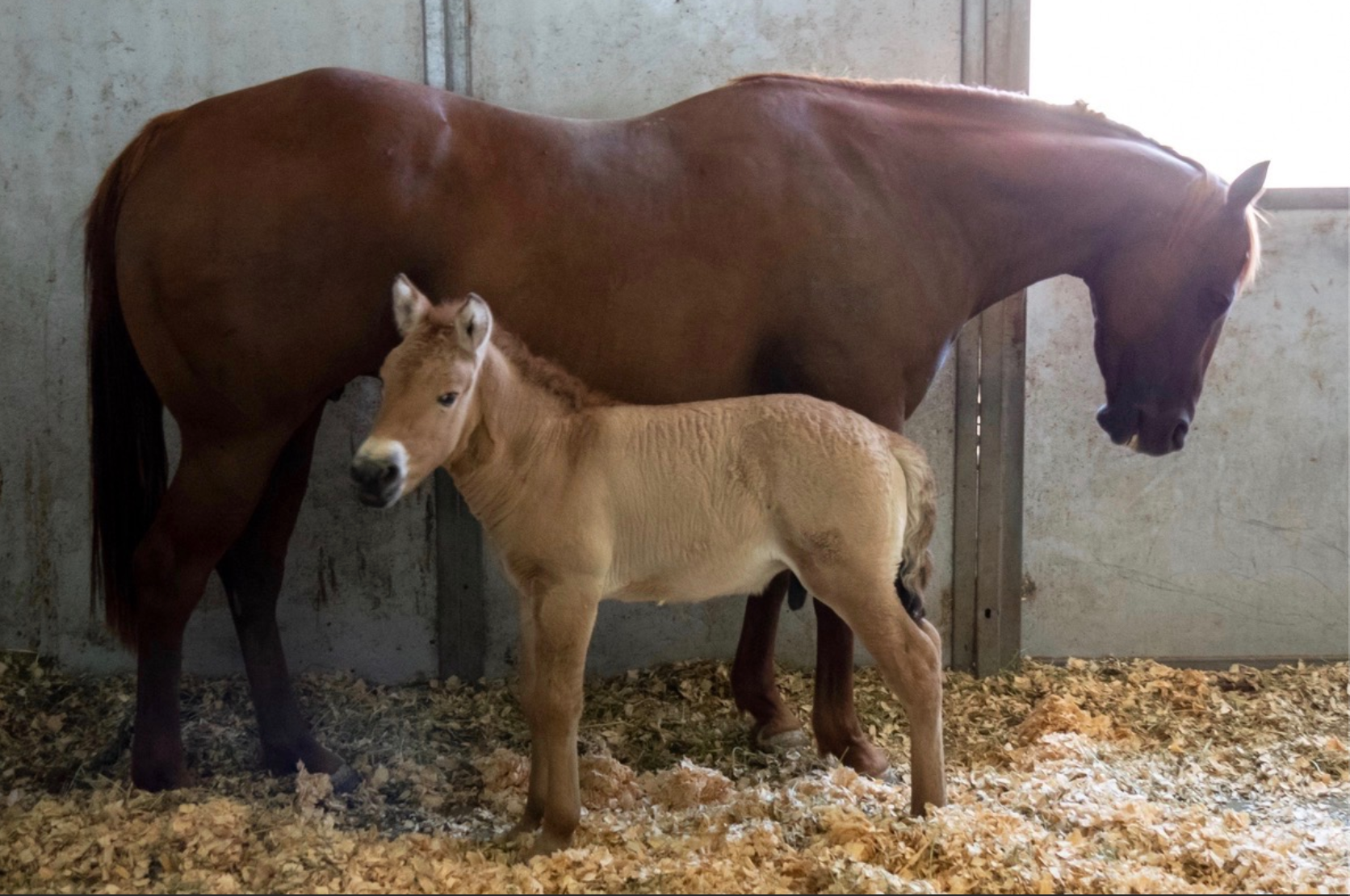First cloned Przewalski’s horse brings hope for species revival
The colt, born at a Texas veterinary hospital, sheds light on the importance of genetic rescue of endangered wildlife species.
Kurt, the cloned Przewalski’s foal stands beside his surrogate mother, a domestic mare. (Photo courtesy of Scott Stine)

The San Diego Zoo Global (SDZG) announced last month the birth of the world’s first cloned Przewalski’s horse at Timber Creek Veterinary Hospital in Texas. The foal, born to a surrogate mother, was cloned from a male Przewalski’s horse whose DNA was cryopreserved 40 years ago at the SDZG Frozen Zoo, according to an SDZG release. SDZG and ViaGen Equine (a division of ViaGen Pets and Equine) collaborated on the effort with assistance from Revive & Restore, a wildlife conservation organization that promotes the use of biotechnology in conservation practices.
“This birth expands the opportunity for [the] genetic rescue of endangered wild species,” says Ryan Phelan, executive director of Revive & Restore, in the release. “Advanced reproductive technologies, including cloning, can save species by allowing us to restore genetic diversity that would have otherwise been lost in time.”
The foal, named Kurt in honor of Kurt Benirshke, MD, one of the founders of the SDZG Frozen Zoo and conservation research program, will eventually be transferred to the San Diego Zoo Safari Park to be integrated into a breeding herd of his species, according to the release. “The cells of hundreds of Przewalski’s horses reside in the Frozen Zoo, and form the basis for new opportunities in applying scientific research to preserve species into the future,” says Oliver Ryder, PhD, director of genetics at SDZG.
Once extinct in the wild, Przewalski’s horses have survived the past 40 years almost entirely in zoos around the world. All of the surviving horses are related to 12 Przewalski’s horses born in the wild. Intensive breeding programs have helped to revive and re-introduce the species back into the native grasslands of China and Mongolia, but genetic diversity losses have occurred, says SDZG.
“This colt is expected to be one of the most genetically important individuals of his species,” said SDZG’s Chief Life Sciences Officer Bob Wiese, PhD, adding that he and his team are hopeful that the Przewalski’s foal will bring genetic variation for the future of this species.
Timber Creek Veterinary Hospital has worked with ViaGen Equine for more than 15 years, foaling hundreds of cloned horses for clients around the world, says SDZG. “This Przewalski’s foal was produced using our proven equine cloning techniques,” said Blake Russell, president of ViaGen Equine. “Thanks to the Timber Creek team, this special foal is off to a great start.”
Podcast CE: A Surgeon’s Perspective on Current Trends for the Management of Osteoarthritis, Part 1
May 17th 2024David L. Dycus, DVM, MS, CCRP, DACVS joins Adam Christman, DVM, MBA, to discuss a proactive approach to the diagnosis of osteoarthritis and the best tools for general practice.
Listen